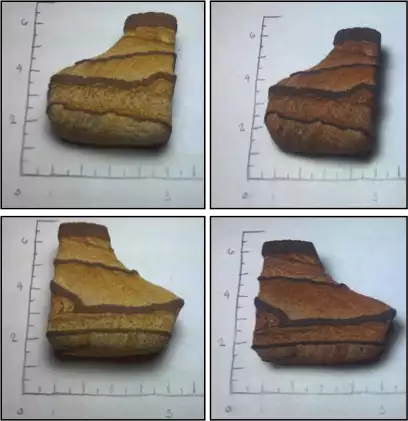Cooking Rocks: Did the Experiment Work?
In-Class Activity 1_How Mars Rocks Change & Evolve

×
Julia Kahmann-Robinson, PhD University of Utah; Marjorie A. Chan, PhD University of Utah
Purpose
Students have the opportunity to scrutinize their Cooking Rocks experiment and decide whether or not the experiment was successful. A key component of this exercise is for students to comprehend that a "successful" experiment does not always mean the experiment "worked".
Preparation
Make sure students have completed their Cooking Rocks experiment.
Engagement
Observe the following experimental results (Figure 1). Was the experiment successful, why or why not?
Exploration
- Would students consider their experiments successful? Why or why not?
- If any failures or issues presented themselves, why did they occur? How could students mitigate them?
Explain
- As students discuss their experiment, particularly the results, explain what success in experimentation really means. Success isn't always equated to "the test worked". Sometimes there is much to be learned in what may appear as failure.
- If students experienced "failure" help them to determine the parameters that can be changed, or ascertain from the students what they think prevented them from a successful experiment.
Enhancement
- In their own words, have students define the term diagenesis:
- How do goethite and hematite differ?
- How did "cooking" the rock facilitate a change in mineral composition?
- Explain how this diagenetic alteration could occur on Mars? Could the alteration occur today? Or in earlier Mars geologic history? Why or why not?
Evaluation
What do students think is the origin of the hematite in the TES imagery (Figure 2)? Consider the context of Meridiani Planum.

![[creative commons]](/images/creativecommons_16.png)
